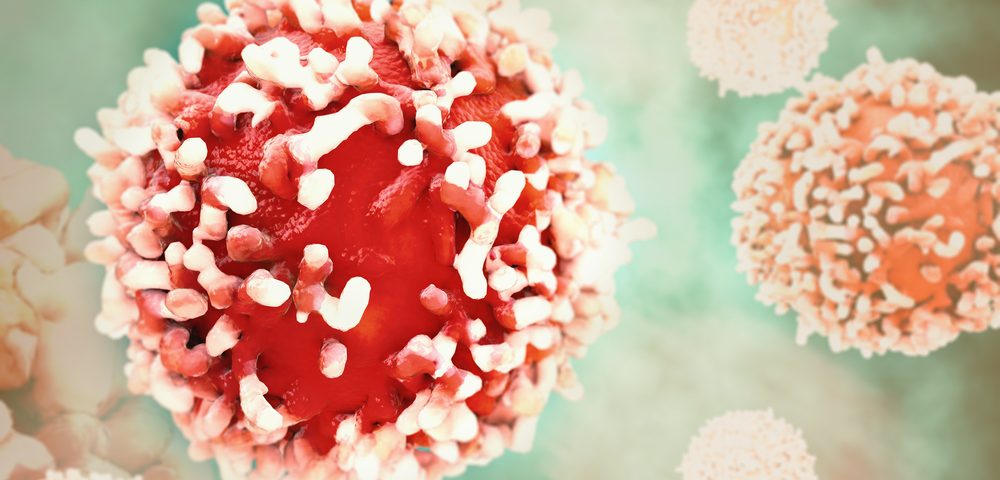A first-in-human Phase 1 clinical trial has been launched to assess the effects of NantKwest’s investigational PD-L1 t-haNK cell therapy in patients with locally advanced or metastatic solid cancers.
The authorization to start the trial came after the U.S. Food and Drug Administration (FDA) completed a review of the company’s investigational new drug application.
NantKwest‘s PD-L1 t-haNK cell therapy is a new type of immuno-oncology therapy based on the use of “natural killer” (NK) immune cells that have been genetically modified to recognize and destroy cancer cells from solid tumors.
These engineered NK cells are able to do so using two independent mechanisms:
- The chimeric antigen receptor — based on the programmed death-ligand 1 (PD-L1, a protein that plays a key role in suppressing the immune system) on the surface of the NK cells — binds specifically to proteins that are only produced by cancer cells.
- The CD-16 receptor, also present on the NK cell surface, attaches to monoclonal antibodies previously bound to cancer cells to facilitate their elimination. This means that the therapy can be successfully used in combination with other targeted approaches.
In preclinical studies, the combination of these two targeted approaches has been shown to increase the ability of NK cells to target and destroy cancer cells, significantly improving the overall response rates to therapy.
“In just a few short weeks since announcing the FDA clearance of our first bi-specific, engineered NK cell therapy clinical trial using a CD19 t-haNK targeting patients in lymphoma, we are now pleased to announce that the FDA has authorized the company to go forward with our second bi-specific NK cell therapy clinical trial using a PD-L1 t-haNK targeting patients with solid tumors,” Patrick Soon-Shiong, chairman and CEO of NantKwest, said in a press release.
“We plan to synergistically combine a wide range of immunotherapy molecules with our proprietary, multi-targeted, off-the-shelf NK cell therapy, in this case, a PD-L1 t-haNK to explore the unique therapeutic potential of integrating both the innate and adaptive immune systems to achieve durable complete remissions,” he said.
Of note, innate immunity refers to the general immune response against pathogens, while adaptive immunity refers to a specific immune response against a pathogen that involves memory.
“Based on the FDA clearance, we look to rapidly transition this program to a Phase I human clinical trial designed to assess the safety, tolerability and efficacy of PD-L1 t-haNK cell therapy in patients with solid tumors,” said Soon-Shiong.
“Upon completion of this safety phase, NantKwest intends to combine this PD-L1 t-haNK cell therapy with other immunomodulatory agents including NabFc-N803, a IL15 cytokine super agonist and Adenovirus/yeast vectors delivering tumor associated and neoantigens, as part of an integrative, combination therapy … which we describe as our NANT Cancer Memory Vaccine,” he added.


